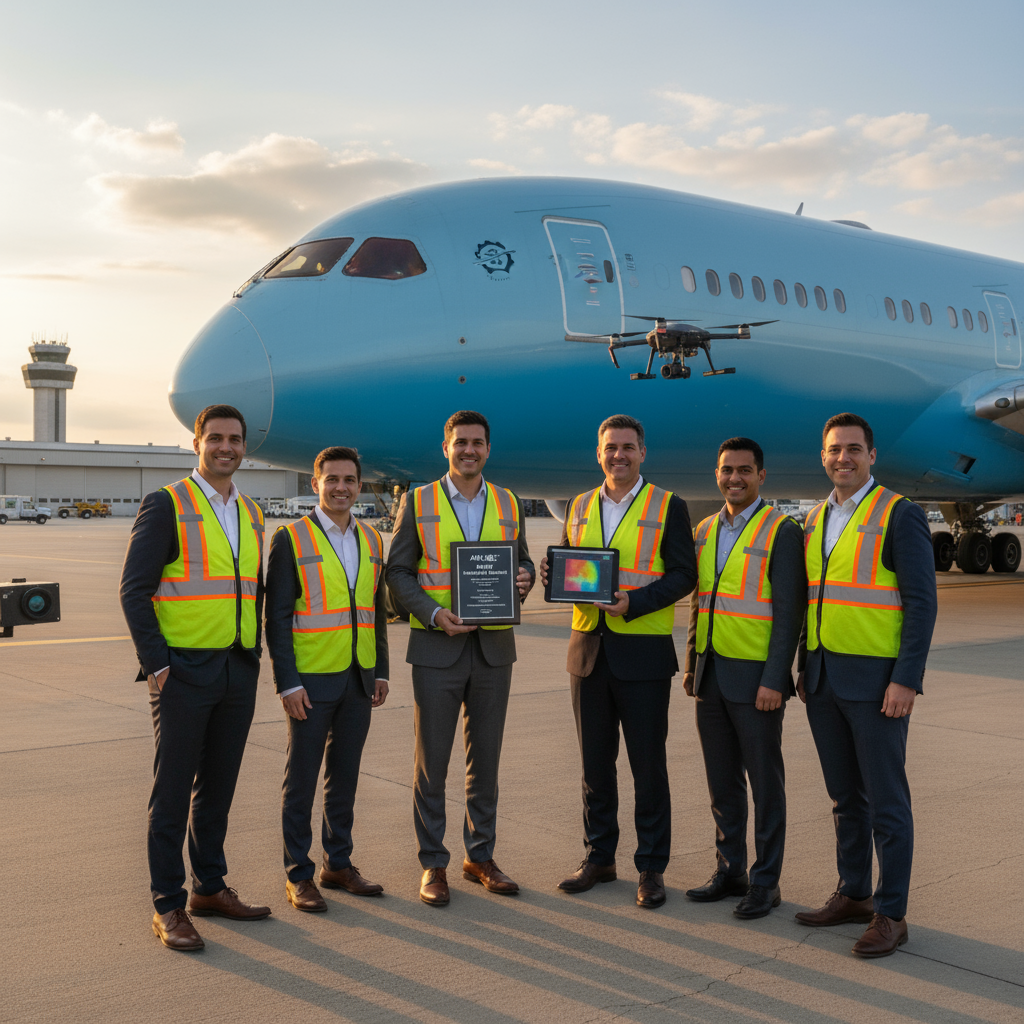Physical Address
304 North Cardinal St.
Dorchester Center, MA 02124
Physical Address
304 North Cardinal St.
Dorchester Center, MA 02124
Global aviation news tracker
Global aviation news tracker

FAA acceptance of the first automatic drone-based aircraft inspection program marks a major step for automated maintenance.
On September 16, 2025 the FAA accepted the first automatic drone-based aircraft inspection program, a system that lets unmanned aircraft autonomously scan fuselages, control surfaces and other exterior areas for maintenance and safety issues. The initiative was recognized the same day with the A4A/SAE NDT Innovation Award, highlighting industry and regulatory progress on automation in aircraft upkeep across the United States.
The program enables drones to follow preprogrammed inspection paths, capture high‑resolution imagery and feed data into nondestructive testing (NDT) workflows. Operators and maintenance teams can then review flagged items faster than with traditional manual walks, potentially reducing turn times and catching surface defects earlier. The FAA’s acceptance signals that regulators are increasingly comfortable with automation playing a routine role in aircraft maintenance.
For airlines and maintenance providers, the promise is clear: safer, faster, and more consistent inspections. Automated drone inspections can standardize the data collected on each aircraft, create auditable records, and free technicians to focus on repairs rather than repetitive visual checks. The A4A/SAE honor underscores the technology’s readiness to move from trials into broader operational use.
Industry watchers say adoption will grow as more operators demonstrate reliable performance and as regulators refine guidance for autonomous systems around airports and maintenance areas. While the FAA acceptance doesn’t standardize every procedural detail, it does create a pathway for wider deployment in the U.S. maintenance ecosystem. Expect airlines and MROs (maintenance, repair, and overhaul providers) to pilot the technology on larger fleets in the coming months and years.